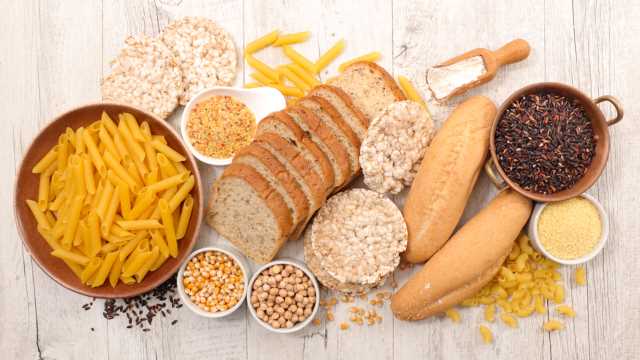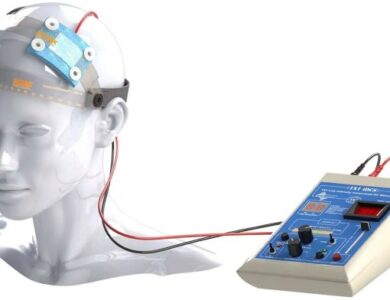How a Gluten-Free Diet Can Transform Your Health

The gluten-free diet has exploded in popularity in recent years, driven by increased awareness of celiac disease and gluten sensitivity. But what exactly is gluten, and who needs to follow a gluten-free diet? This comprehensive guide delves into the world of gluten-free living, providing everything you need to know.
What is Gluten?
Gluten is a protein found in wheat, barley, and rye. It acts as a glue that holds the shape of these grains together, giving bread and other baked goods their characteristic texture. However, for individuals with certain conditions, gluten can be harmful.
Who Needs to Follow a Gluten-Free Diet?
- Celiac disease: This autoimmune disorder affects approximately 1% of the population. When individuals with celiac disease ingest gluten, it triggers an immune response that damages the small intestine, interfering with nutrient absorption.
- Gluten sensitivity: Also known as non-celiac gluten sensitivity, this condition causes digestive symptoms like bloating, diarrhea, and fatigue in response to gluten consumption, but without the intestinal damage seen in celiac disease.
- Wheat allergy: This is a true allergic reaction to wheat, which can trigger symptoms like hives, swelling, and anaphylaxis in severe cases.
Benefits of a Gluten-Free Diet
For individuals with celiac disease or gluten sensitivity, following a gluten-free diet can offer significant benefits, including:
- Improved digestion: Reducing or eliminating gluten can alleviate symptoms like bloating, diarrhea, and pain, leading to improved digestion and overall well-being.
- Increased nutrient absorption: When the small intestine is healthy, it can absorb nutrients more effectively, leading to improved energy levels and overall health.
- Reduced risk of complications: Following a gluten-free diet can help prevent long-term complications associated with celiac disease, such as osteoporosis and malnutrition.
What to Avoid on a Gluten-Free Diet
While many grains are naturally gluten-free, several common foods contain gluten and should be avoided:
- Grains: Wheat, barley, rye, spelt, kamut, semolina
- Processed foods: Bread, pasta, crackers, cereals, cookies, cakes, pastries, sauces, condiments
- Malt: Malt beverages (beer, ale, malt vinegar), malt extract
- Other sources: Soy sauce, some processed meats, some medications
Alternatives to Gluten-Containing Foods
Fortunately, a wide variety of gluten-free alternatives are readily available, allowing people to enjoy delicious and nutritious meals without gluten. These include:
- Gluten-free grains: Quinoa, rice, oats (certified gluten-free), corn, millet, sorghum
- Gluten-free flours: Almond flour, coconut flour, tapioca flour, potato starch, rice flour
- Gluten-free bread and pasta: Many brands offer delicious and nutritious gluten-free bread, pasta, and other baked goods.
- Gluten-free snacks: Nuts, seeds, fruits, vegetables, yogurt, gluten-free crackers and chips
- Gluten-free cooking ingredients: Use gluten-free soy sauce, gluten-free baking powder, and other gluten-free ingredients to create delicious meals.
Tips for Starting a Gluten-Free Diet
Here are some tips to help you get started on a gluten-free diet:
- Educate yourself: Learn about gluten and the foods that contain it.
- Read food labels carefully: Always check ingredient lists for hidden sources of gluten.
- Talk to your doctor or a registered dietitian: They can help you create a personalized gluten-free meal plan.
- Plan your meals and snacks: This will help you avoid temptation and ensure you have nutritious gluten-free options readily available.
- Connect with other people on a gluten-free diet: This can provide support and inspiration.
Conclusion
A gluten-free diet can be a challenging but rewarding journey for those who need it. By educating yourself, planning your meals, and finding delicious gluten-free alternatives, you can enjoy a healthy and fulfilling life without gluten.
Additional Resources:
- Celiac Disease Foundation: https://celiac.org/
- National Institute of Diabetes and Digestive and Kidney Diseases: https://www.niddk.nih.gov/about-niddk/offices-divisions/division-digestive-diseases-nutrition
- Gluten Intolerance Group: https://gluten.org/
Remember: This is not a substitute for professional medical advice. Always consult with your doctor or a registered dietitian before making any changes to your diet.




